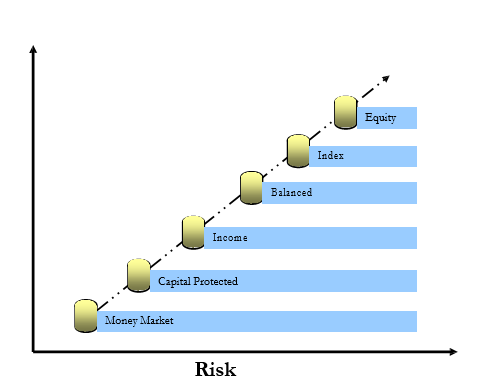Risk of investing in Mutual Funds

All investments in mutual funds are subject to market risks, and you may lose some or all of your money if the securities held by the fund move up and down in value. Past performance is not necessarily indicative of future results. The NAV based prices of units and any dividend/returns thereon can fluctuate as market conditions change. Funds with higher rates of return may take risks that are beyond your comfort level and may be inconsistent with your financial goals. All funds carry some level of risk.
Depending on the investment objective and category, a mutual fund can be subject to any or all of the following risks which could affect a fund’s performance.
Market risk
Overall “market risk” is the greatest potential danger for investors in stocks funds. Stock prices can fluctuate for a broad range of reasons such as the overall strength of the economy or demand for particular products or services. This risk also known as systemic risk is caused by the economic, geographical, political and social factors of the specific market where the stock is listed.
Credit risk
The risk that the issuer of securities, for example TFCs, held by the mutual fund fails to meet its debt obligations. Similarly, there is a probability that an investment will go down in value, if the issuer of the security is downgraded by a reputable credit rating service.
Interest rate risk
The value of anvinvestment will decline due to a change in the absolute level of interest rates. Normally, rise in interest rates during the investment period may result in reduced prices of the held securities. Funds that invest in longer-term bonds tend to have higher interest rate risk.
Liquidity risk
This arises from lack of marketability of an investment that cannot be quickly sold to convert to cash without incurring a loss. Thinly traded securities carry the danger of not being easily saleable at or near their real values. Liquidity risk is a characteristic of the fixed income market.
Please note that to reduce risk of loss it is always advisable to consult with your investment advisor/broker. While risk cannot be eliminated, the experience and expertise of mutual fund managers in selecting fundamentally sound securities and timing their purchases and sales may result in a diversified portfolio that minimizes risk while maximizing returns.